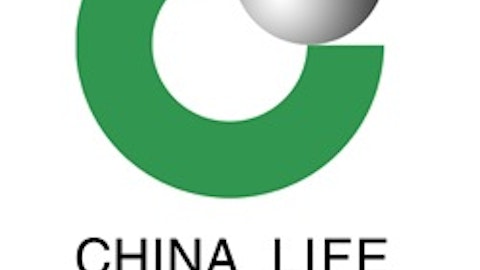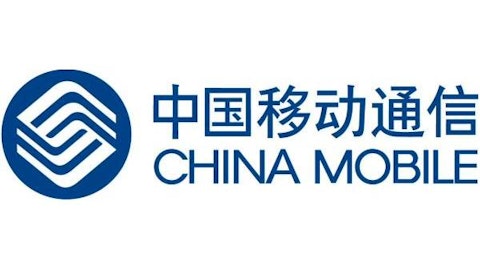Overall mobile penetration in China stands at 75%, which is lower than other large emerging economies like Mexico and Brazil, where penetration is well over 80%.
The TD-SCDMA (TD) technology is an air interface developed in China in an attempt to avoid dependence on Western technology. However, in January 2009, the Government assigned licences for different 3G mobile phone standards to three carriers. TD was assigned to China Mobile Ltd. (ADR) (NYSE:CHL) while licences for the W-CDMA were assigned to a subsidiary of China Unicom (Hong Kong) Limited (ADR) (NYSE:CHU) and to China Telecom Corporation Limited (ADR) (NYSE:CHA).
All three have very healthy financial positions, so pursuing growth opportunities should not be a problem.
The giant
The largest mobile carrier in the world, China Mobile Ltd. (ADR) (NYSE:CHL), currently has 64% of Chinese mobile market share. The Chinese government controls over 71% of the company.
The carrier enjoys unrivaled scale efficiency, strong brand recognition, and greater network coverage than any of its peers. A strong brand is especially useful to attract and retain high-spending subscribers.
In recent years, China Mobile Ltd. (ADR) (NYSE:CHL) has struggled to grow its 3G services as it is based on a less mature technology: TD. This means slower network speeds compared to rivals and less attractive handset selection. To the company’s relief, number portability has not been implemented in China. Also, competition for subscribers, especially in the profitable but saturated urban markets, has intensified, which forced the company to seek subscriber growth in lower-income rural areas.
Despite these challenges, China Mobile Ltd. (ADR) (NYSE:CHL)’s ability to stay competitive is not in question. It has been installing WiFi hotspots in major cities to improve connection speed for subscribers. Also, the company recently announced that it plans to spend around $6.7 billion to build out its 4G LTE network. This is a significant move, allowing the firm to take a step closer to a deal that wouldintroduce the iPhone on the TD network, which would allow it to increase it share in 3G phones, currently at 13%.
Competition is rising
China Unicom (Hong Kong) Limited (ADR) (NYSE:CHU) is the second-largest mobile carrier in China. Its state-owned parent company owns more than 70% of shares.
Mobile services account for nearly half of China Unicom (Hong Kong) Limited (ADR) (NYSE:CHU)’s total revenue. The company’s future depends on whether it can successfully execute in the 3G race to expand its subscriber base, and gain better scale efficiency, based on the W-CDMA technology. This won’t be an easy task.
While China Mobile Ltd. (ADR) (NYSE:CHL) currently has the largest number of high-spenders on mobile services, rivals like China Unicom (Hong Kong) Limited (ADR) (NYSE:CHU) may take advantage of the numerous frustrated China Mobile Ltd. (ADR) (NYSE:CHL) 3G subscribers, whose main complaints are slow connection speeds and a dearth of handset selection options. Still, lack of number portability makes it hard for subscribers to move from one company to another. A wide selection of W-CDMA handsets help China Unicom (Hong Kong) Limited (ADR) (NYSE:CHU) appeal to Chinese subscribers.




